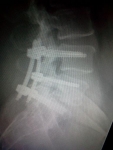jbn3boys let me first recount some facts:
- You have been using your unit for 2 1/2 months (or more by now).
- You continue to feel about the same as when you started (if not worse).
- You use a Respironics machine
- You use Encore Viewer which reports an average AHI that ranges from 7 to 12
- Encore Viewer shows central apneas
- The pressure range varies from 9 to 16/17
You also asked a some questions:
- Should I be asking to be switched to bipap, based on the sleep study report (specifically in regard to the rem stage) and the fact that I am still not feeling rested?
- If so, who should I be contacting first? My RT at my DME (who is very good), my PCP, who Rx'd the cpap machine, but really doesn't know much about them, or the sleep doc, who only read the results, but has never seen me?
- If I need to make this change, I'd like to do it as soon as possible, so all the kinks can get ironed out before the end of the year.
Okay, the last is not a question as much as it helps set the stage.
Now some thoughts and answer to "What would I do in your shoes?". As you well know, I am not a medical professional. I've just been down this type of road before. So, this is just based on my own personal experience and how I tackled similar issues.
First, let's tackle the central apneas, since they often create confusion. I know you understand about central apneas. What is key to know is that we often experience what appears to be central apneas during the transition from wakefulness to sleep. And then again when we awaken. Why? The mechanism used to control breathing is different when we are awake and when we are asleep. During this transition there is a "hand off" that often results in "central apneas". During the sleep study those central apneas are automatically discounted. We normally just fall asleep and then our breathing stabilizes. Here is an article about that:
Ventilation is unstable during drowsiness before sleep onset
http://jap.physiology.org/cgi/reprint/99/5/2036
Of course, if those central apneas are profound enough, you may not be able to reach sleep. That was one of my problems. I would stop breathing so long that my BiPAP unit thought I was no longer breathing. So, after a minute of not breathing my BiPAP would turn off. Not a good thing to have happen over and over and over. So, if it is a problem, then certainly it should be addressed.
HOWEVER, I do not sense that you are overly worried about the central versus obstructive versus hypopneas. One sentence of your stood out for me:
jbn3boys wrote:... I'm basing my original question on the fact that I am still extremely tired, regardless of my CA numbers. ...
So, let me get back to your questions.
jbn3boys wrote:... Should I be asking to be switched to bipap, based on the sleep study report (specifically in regard to the rem stage) and the fact that I am still not feeling rested? ...
Rather than worrying about BiPAP or CPAP or APAP, it is usually best to present that you still feel poorly. Present the symptom. THEN note that it appears from the sleep study when you were on BiPAP you had more REM sleep. Then ask "Would BiPAP be an option to help?" Present the symptom / concern and something that was noted in your sleep study. Otherwise, it feels as if you are trying to diagnose yourself. And the fact is that you clearly do not feel any benefit from the current therapy. The contined AHI over 5 is an indication it is not as effective as it should be.
jbn3boys wrote:... Who should I be contacting first? My RT at my DME (who is very good), my PCP, who Rx'd the cpap machine, but really doesn't know much about them, or the sleep doc, who only read the results, but has never seen me? ...
To whom should you address the question. You might want to ask the RT is they have an BiPAP auto that you could borrow / rent for a month to see how it does. That might provide some hard evidence one way or the other. It might also be an option to determine if it will help.
But I would present the whole issue to your PCP, who prescribed the therapy. The sleep doctor would probably send you back to your doctor (to avoid issues with insurance companies). Your PCP may refer you to see the sleep doctor. Or you might be able to talk your PCP into a BiPAP trial. Either way, it generally works best to go to the prescribing doctor first.
jbn3boys wrote:... If I need to make this change, I'd like to do it as soon as possible, so all the kinks can get ironed out before the end of the year. ...
You also note that you should make the change happen fairly quickly, due to a change in insurance companies. In fact, that can make it easier to switch machines. They new company might require another sleep study. It might be necessary to prove the validity of BiPAP. Sometimes they are more than willing to pay for the sleep study to avoid paying for more expensive equipment.
Anyway, this is how I would tackle this issue. And in fact it's what I did about 18 years ago when I switched from CPAP to BiPAP. In my case an additional sleep study was needed to show that I had lots of spontaneous arousals on CPAP and many fewer with BiPAP. But it's different for everyone.
In summary, I would first do some legwork with the RT to find out if a BiPAP trial is an option. Then I would go back to your PCP, note that you continue to feel poorly, that your AHI remains higher than 5, even after 2 1/2 months. Also note that you use it all the time, that you have no significant leak problems. Include some of the reports to show what you feel. But don't go overboard with the reports. Rather focus on "What do we need to do to help me feel better?" And as I noted your new insurance might actually make the change of equipment easier.
Hope that helps.












